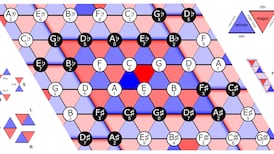Scientists at Maynooth and in Australia have developed a way to watch the immune system go to war against an infection and then ease back once the conflict has been won.
The work provides a better understanding of how the immune system's T-cells work and is published today in the journal Nature Communications.
T-cells are key fighters in our immune system, first detecting any invading organisms and then multiplying to build an army as quickly as possible if an infection takes hold.
The challenge for scientists was to be able to watch this ramp-up of T-cells given the difficulty of tracking their progress under a microscope.
The team from Maynooth University and the Walter and Eliza Hall Institute in Melbourne, Australia, joined forces to study a new way to watch these T-cells in action – fluorescence.
The scientists found that families of immune cells develop during an immune response, producing wave after wave of fighters that are programmed to divide and die at different times after an infection starts.
Programmed death
Once the infection is beaten the cells go into programmed death and only a few cells are left on patrol as sentinels lest the infection try to return, the researchers explained.
They were able to watch the T-cells because they were treated with a green fluorescent dye. The initial cells carried the full dye but this was reduced by half with each successive generation of cells so they could follow them.
It meant the researchers were able to track hundreds of families of cells develop, a great improvement on the few that could be watched with a microscope.
Understanding how this process works is important and may open up new ways to fight infection using immunotherapy. It may be possible to collect a few T-cells, make them angry and ready for a fight and let them loose back in the bloodstream to multiply and attack a target.
The work advances our understanding of how the immune system works and could be important for other diseases and conditions that involved the immune system working inappropriately, said Prof Phil Hodgkin of the Australian Institute.










